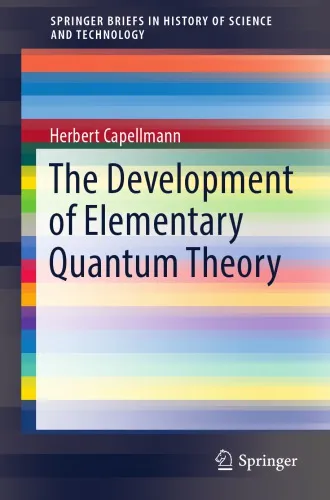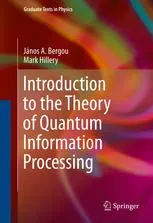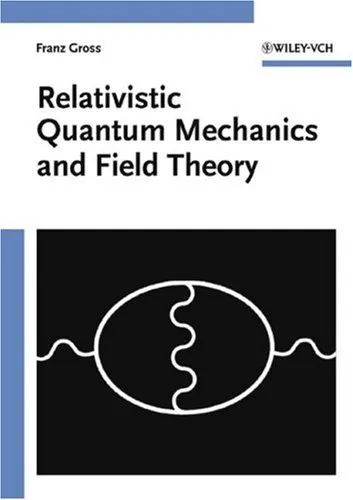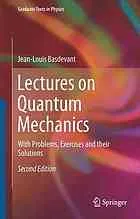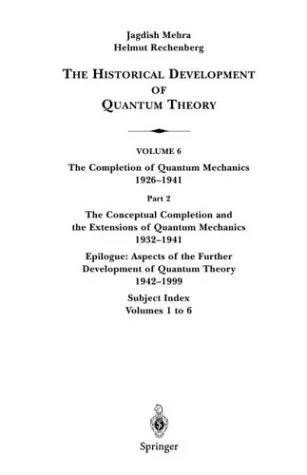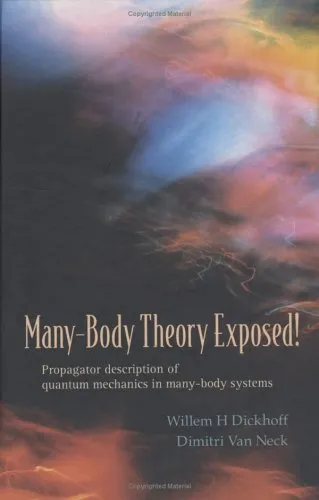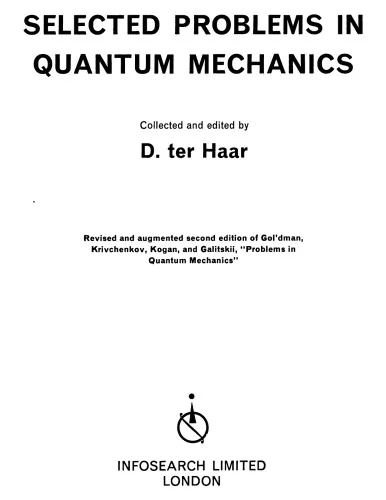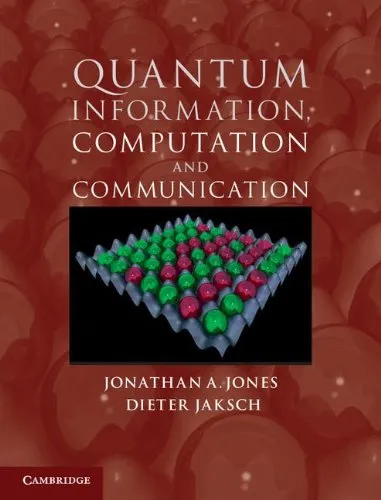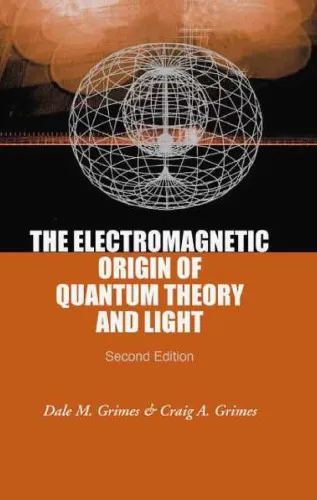The development of elementary quantum theory
4.5
Reviews from our users

You Can Ask your questions from this book's AI after Login
Each download or ask from book AI costs 2 points. To earn more free points, please visit the Points Guide Page and complete some valuable actions.Related Refrences:
Introduction to 'The Development of Elementary Quantum Theory'
The ever-intriguing world of quantum theory beckons the curious with its complex phenomena and groundbreaking insights into the fundamental workings of the universe. 'The Development of Elementary Quantum Theory' invites both seasoned physicists and newcomers to embark upon an enlightening journey through the origins, development, and applications of this pivotal scientific concept.
Detailed Summary of the Book
'The Development of Elementary Quantum Theory' traverses the evolution of quantum theory from its nascent roots in the early 20th century to its current status as the backbone of modern physics. The book explores key milestones and breakthroughs, detailing pivotal experiments, influential scientists, and the abstract mathematical formulations that lay the groundwork for quantum mechanics.
Readers will gain insight into the initial challenges and skepticism faced by pioneers like Max Planck, Niels Bohr, Albert Einstein, and Werner Heisenberg. The narrative highlights their revolutionary ideas about quantization, wave-particle duality, and uncertainty, which altered the course of scientific thought and expanded our understanding of the universe.
The book does not only focus on the past. It also covers contemporary applications of quantum theory, including quantum computing, teleportation, and cryptography, demonstrating how the theory continues to push the boundaries of scientific and technological advancement.
Key Takeaways
- The historical evolution of quantum theory is marked by paradigm shifts and the reconciliation of classical physics with quantum phenomena.
- Quantum theory introduces fundamental concepts such as quantization, superposition, and entanglement, which challenge classical notions of physics.
- The synergy between theoretical developments and experimental validations has been crucial in establishing the credibility of quantum mechanics.
- Recent innovations like quantum computing and cryptography are directly rooted in quantum theoretical principles, illustrating the ongoing relevance and potential of the field.
- Understanding quantum theory provides profound insights into both the microcosm and macrocosm, offering a holistic view of reality.
Famous Quotes from the Book
"Quantum theory not only questions our understanding of the universe but also redefines the very framework through which we interpret existence."
"To grasp the essence of quantum principles is to peer into the very fabric that weaves the cosmos."
Why This Book Matters
‘The Development of Elementary Quantum Theory’ matters because it serves as a comprehensive guide to one of the most transformative fields of science. In an era where quantum technology is poised to revolutionize industries and daily life, understanding its roots, evolution, and future potential is more relevant than ever.
For students, educators, and enthusiasts alike, this book bridges the gap between theoretical concepts and practical applications. It provides a structured exploration of quantum mechanics suitable for both new learners and those seeking to deepen their existing knowledge.
Furthermore, the book sheds light on the philosophical and ethical implications of advancements in quantum technology, prompting readers to ponder the broader impact on society and human progress. By engaging with this text, readers are equipped to not only understand but also contribute to the ongoing dialogue around quantum innovation.
Free Direct Download
You Can Download this book after Login
Accessing books through legal platforms and public libraries not only supports the rights of authors and publishers but also contributes to the sustainability of reading culture. Before downloading, please take a moment to consider these options.
Find this book on other platforms:
WorldCat helps you find books in libraries worldwide.
See ratings, reviews, and discussions on Goodreads.
Find and buy rare or used books on AbeBooks.
